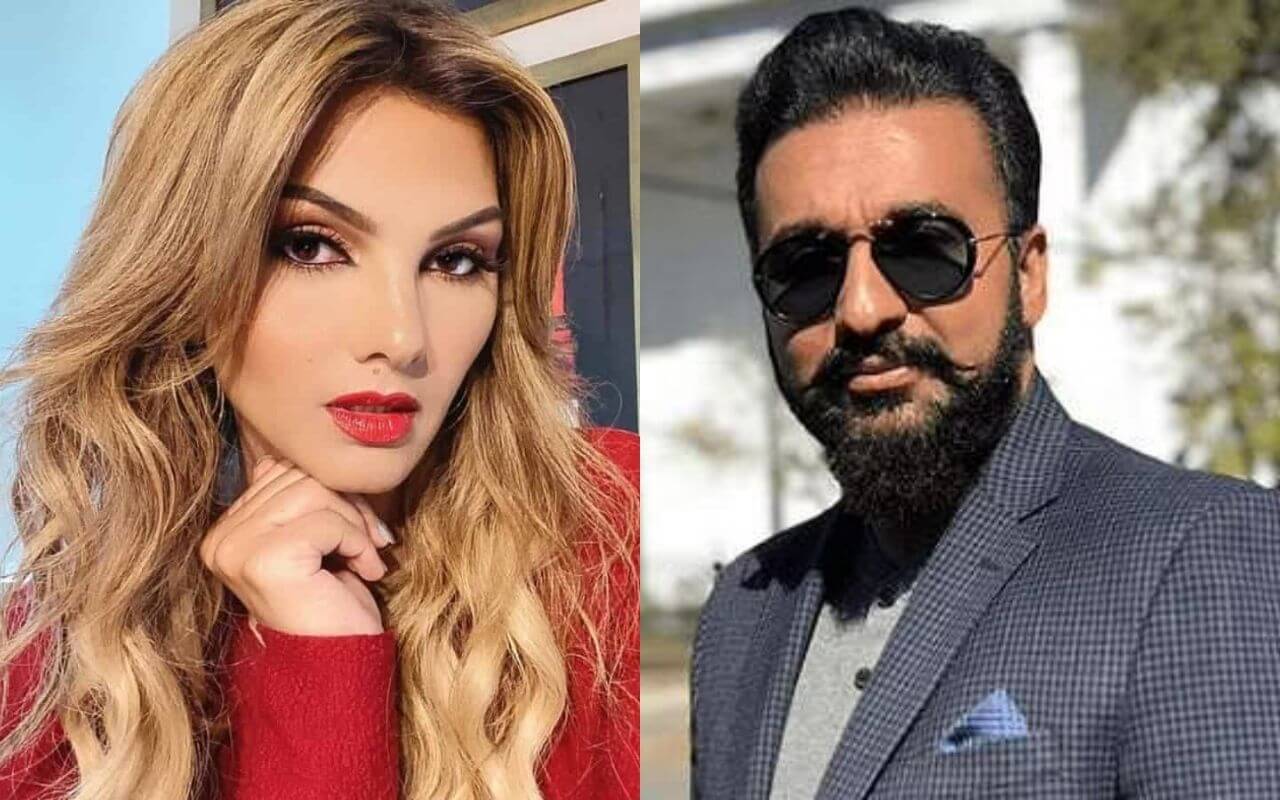It is a lesser known fact that David Dhawan started his journey as a filmmaker with editing and the latter is a craft he enjoys more than any other. That his actual name is Rajinder and ‘David’ was a name fondly given to him by a Jew family in Kolkata, is another trivia. The In-Conversation session titled, ‘Dha-One’, featuring David Dhawan and his superstar son Varun Dhawan was full of such lesser-known facts surrounding the Dhawan family, a candid recollection of David and Varun’s journey in films and the changes in the film industry from the duo’s point of view. The massive DMK auditorium at Kala Academy failed to contain the huge swarm of Varun Dhawan’s fans who did not stop cheering, whistling and expressing their love for the young icon.
While recollecting his foray into the world of acting, Varun Dhawan was quite vocal about his love for films of darker shades. The actor was all praise for films like Dhobi Ghat, Black Friday and Badlapur. Varun said, “I would have given my right arm to be launched by Anurag Kashyap”, to which David quipped, “Thank god, not!” The senior Dhawan further added, “When I learnt that he had auditioned for Dhobi Ghat, I suggested him to give up the idea and instead do ‘proper’ Bollywood cinema. Later, when Karan (Johar) told me that he is casting Varun in a lead role in his film, I thought ‘what can be better than this?’ I asked Varun to step on his shoulder and take the leap.”
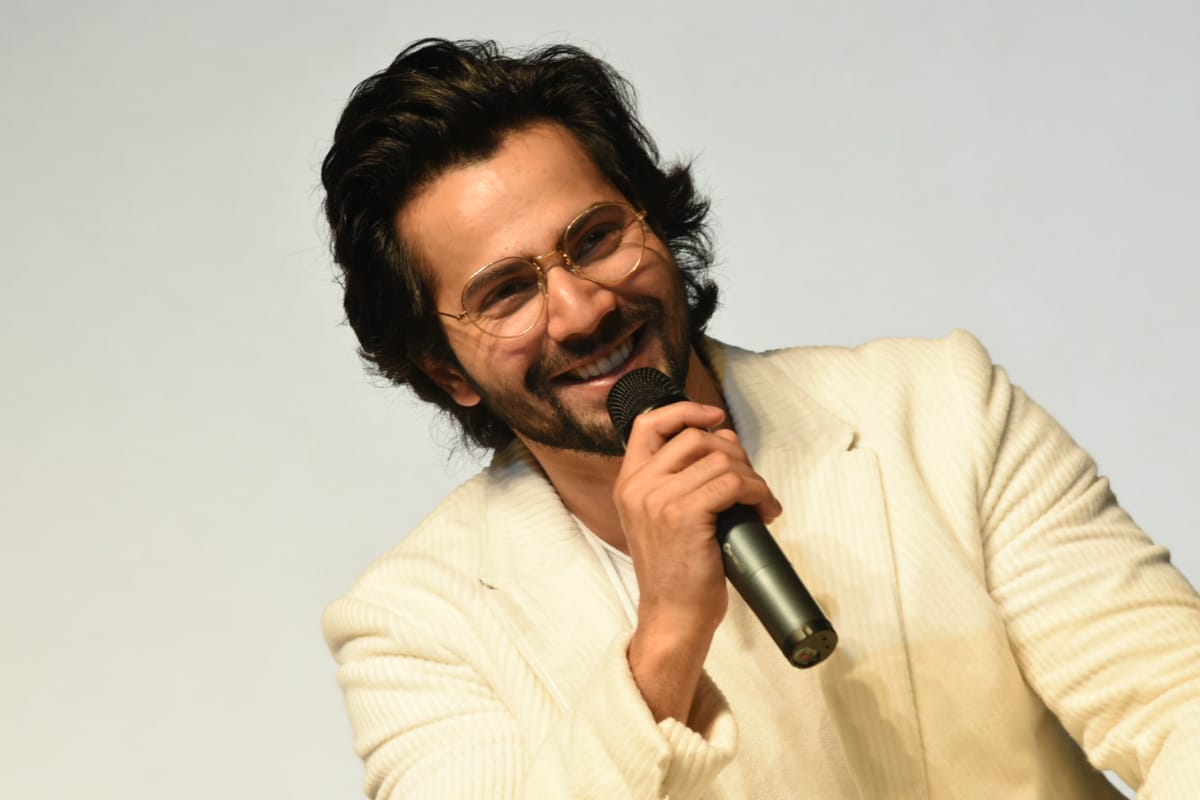
Using the example of the blockbuster film Amar Akbar Anthony, David said, “The scene where the brothers collectively donate blood to their mother, still attracts an applause. The idea is impractical, but cinema is all about what you make the audience believe. You’re selling dreams, at the end of the day.”
While speaking about what drew him to acting, Varun said, “I always wanted to be the funny guy in the group. I dreamt of owning a channel and do talk shows. I used to be obsessed with improv comedy.”
The session moderated by Rumi Jaffery then touched upon various facets of the Dhawan family, including Varun’s brother Rohit Dhawan who is also a filmmaker, the bonding between the brothers, their mother, and the times growing up.
When asked if he was nervous about his debut film, Student Of The Year (SOTY), Varun surprisingly dismissed the notion. He said, “We all (Varun, Alia Bhatt, and Siddharth Malhotra) were newcomers. So SOTY was all Karan’s headache. I knew that if the film did not do well, the blame would be all on Karan. I was stressed in the true sense for the first time before the release of Main Tera Hero. That was my first solo hero film. I was desperate to convince the audience that I’m their hero who can laugh, cry, dance, romance, be funny and do everything that a hero does.”
The actor said he is very excited about his upcoming film, Kalank, and that he is eager to see how the audience receives him and the film.
The ending of Andhadhun, whatever you make of it, tells you a lot about yourself – Shridhar Raghavan
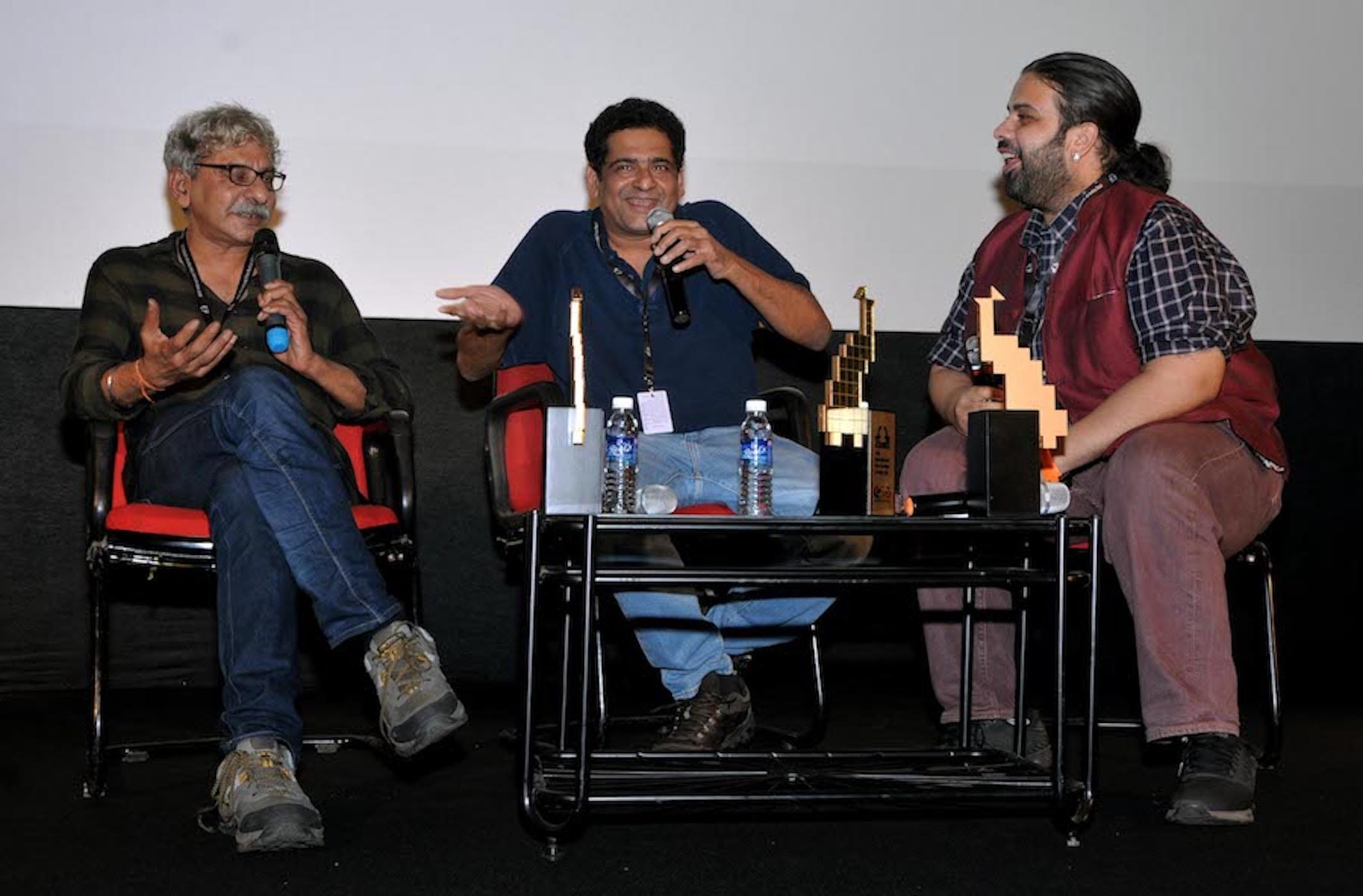
The talented duo of siblings, filmmaker Sriram Raghavan and writer Shridhar Raghavan enthralled the audience at IFFI 2018 with anecdotes from their years growing up together in Pune and their journey through the film industry.
Speaking about how they fell in love with cinema, Sriram said, “As a kid I loved movies, that’s the only escape I had”, to which Shridhar added that “We grew up in Pune next to the Apollo and Alankar cinema halls where we would watch all kinds of films from the past and present, Hindi and Hollywood. One time I bunked school for 6 months and just watched films. Much like how kids do today using torrents.”
On being asked why it took him 17 long years to make his first feature film after passing out of FTII, Sriram said that “Hindi cinema in the ’90s wasn’t the kind of films I wanted to make. Also, I took time finding my voice. My critical faculty was much better than my writing ability and hence I didn’t like anything I wrote.”
To the amusement of everyone in the hall, Shridhar added that. “With Sriram screenwriting is like Kamasutra. He tries every position and angle.”
A lot of discussions revolved around his latest thriller, Andhadhun, a film that’s still running to packed houses. Asked about the ending Sriram was cryptic as always. He asked the audience to tell him what they felt. Shridhar felt that what one thought of the ending revealed a lot about how they looked at the world and human nature. The primarily young student filmmaker community in the audience asked the duo multiple questions on their writing and filmmaking process, which the siblings answered in detail.
Tune into Tunisian Cinema by Tunisian Ambassador – H.E. Nejmeddine Lakhal

IFFI 2018 hosted a special session on Tunisian cinema with the motive of promoting tourism of Tunisia through cinema. The session, led by Tunisian Ambassador H.E. Nejmeddine Lakhal, began with a 3-minute short film promoting tourism of Tunisia. The session also included a presentation on the topic – ‘Opportunity of making films in Tunisia’.
The presentation touched upon crucial points that play an important role in making Tunisia conducive as a location for film shoots, such as the history of Tunisia (how it was formed) and reasons for making films such as strategic location, climate, landscapes, historical ruins, modern infrastructure, and logistics, etc. The cost of shooting is said to be 30 % less than other countries.
H.E. Nejmeddine Lakhal said, “There are movies like Star Wars shot in Tunisia. Indian filmmakers should explore this opportunity. When it comes to technician, actors, accommodations, locations, the logistics and documentation are very competitors. You have exemption and customs clearance in 24 hours. One thing you have to do is connect with the movie production team in Tunisia and they will do anything for you. If you need equipment, technician, tourist certificate from the army that will take one week to 12 days.”
Poetry in Motion with Pierre Gill
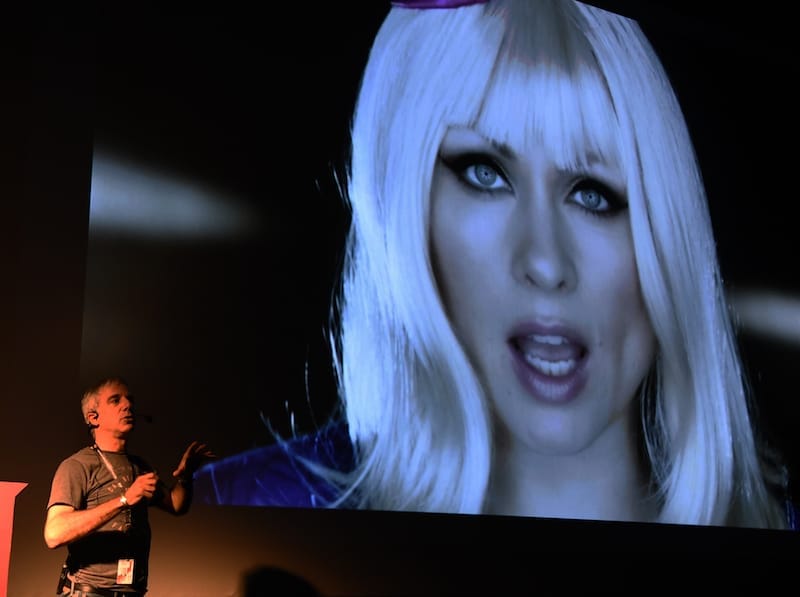
The budding cinematographers and students of photography were in for a treat as IFFI 2018 had a wonderful session with a two-time winner of American Society of Cinematographers, USA (ASC Award). The Canadian cinematographer is best known for his work on films such as Black List, The Art of War, Lost and Delirious, The Rocket, Polytechnique, and Upside Down. He served as the second unit director of photography on Villeneuve’s Blade Runner 2049, which won the Academy Award for Best Cinematography.
The session gave the audience members a technical insight into the world of cinematography. Pierre spoke about the various factors that make or break ‘a perfect shot’, such as the type of lens to be used, the light arrangement, the camera angle, whether to use monochrome or colour, and many more.
While stressing on the importance of making the actor or actress look good, Pierre said, “The actress has the power to ask for a specific cinematographer when she knows that she’s going to look good.” The talented lensman then highlighted the importance of lighting up facial features of the actor, such as the eyes. Pierre said, “The eyes are critical for me. The soul of the person is behind his / her eyes. It is important to choose the lens based on the facial structure of the actor.”
Ramesh Sippy, Dipendra Manocha, Rummi Seth, and Narendra Joshi discuss audio description for the Visually Impaired
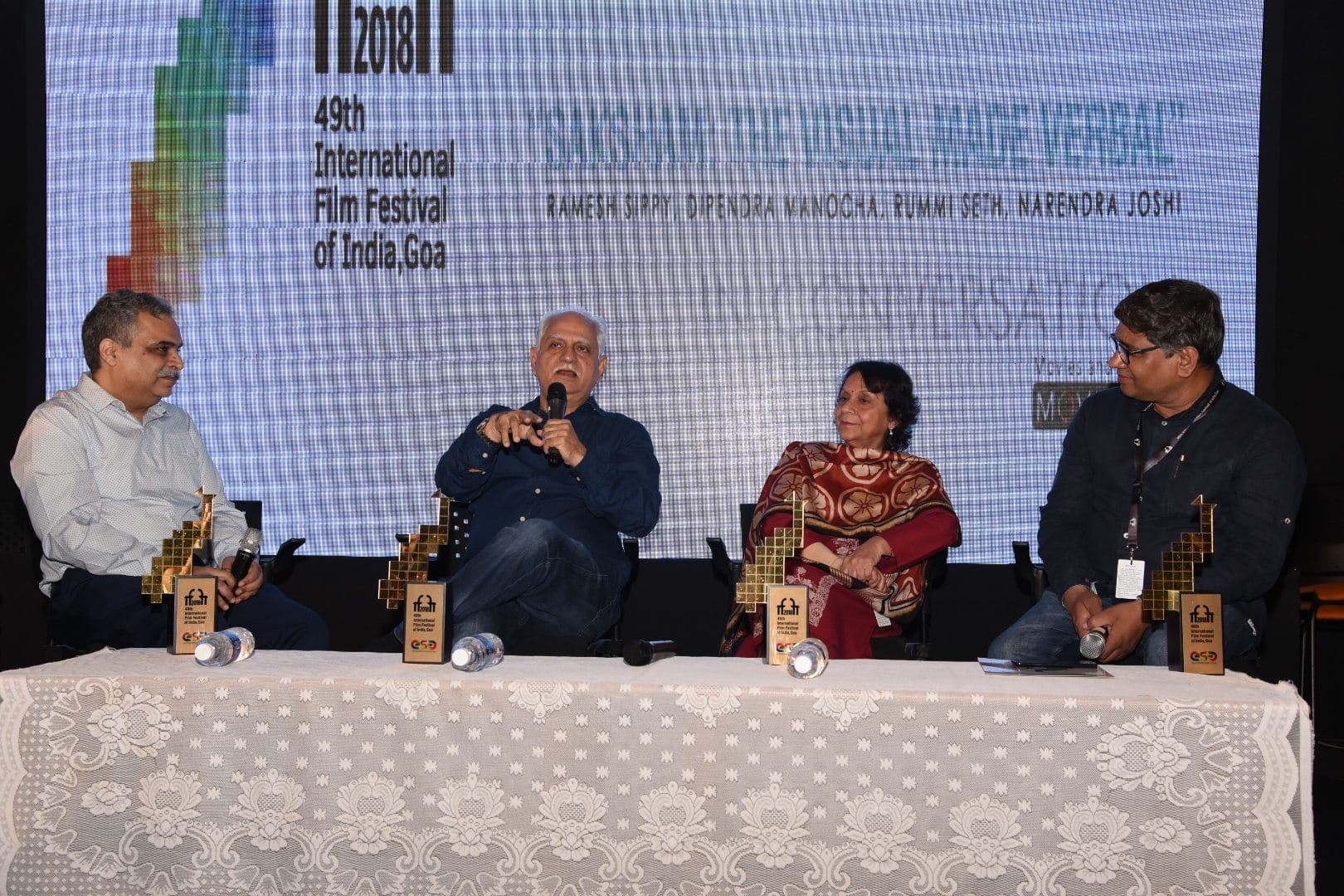
IFFI 2018 in its endeavor to promote inclusivity, screened two Hindi films – Sholay and Hitchki with audio description for the visually impaired. Ramesh Sippy, the Indian film director, and producer, best known for directing Sholay, was seen in a conversation with Dipendra Manocha, Rummi Seth and Narendra Joshi. The discussion session titled, Saksham: The Visual Made Verbal was about making cinema accessible to the visually impaired.
Dipendra Manocha is working as the Developing countries coordinator and Lead of Training and Tech Support with the DAISY Consortium. He is a member of the Executive Committee of the World Blind Union and the managing trustee of the Saksham Trust. Saksham Trust works towards empowering communities by creating multiple opportunities and providing platforms for the visually impaired for sustainable social upliftment, thus enabling them to emerge as significant contributors to India’s growth story.
While speaking on the topic, Dipendra Manocha said, “Whenever a producer makes a film internationally, they treat audio description to be an integral part of making that film. So, whenever the film reaches people’s homes or when the family chooses to watch it in the theatres, the visually impaired can enjoy the movie with their family. Film watching in our country is an exercise in social inclusion. It helps forge social bonds. We should now move beyond special shows, like the one held at IFFI, and have an audio description for every movie release in India.”
Ramesh Sippy said, “This movement is great and it should be developed further. I am ready to extend any form of support from my end towards this. To start with, films that are being released can perhaps take a few weeks’ time post the movie’s release – to relieve themselves of the stress that comes with the release of the film – to get the audio description in place. Slowly, we can then target releasing the film with the audio description at the same time when it releases worldwide. It might take some time for these systems to be in place but I’m confident that it will happen.”













